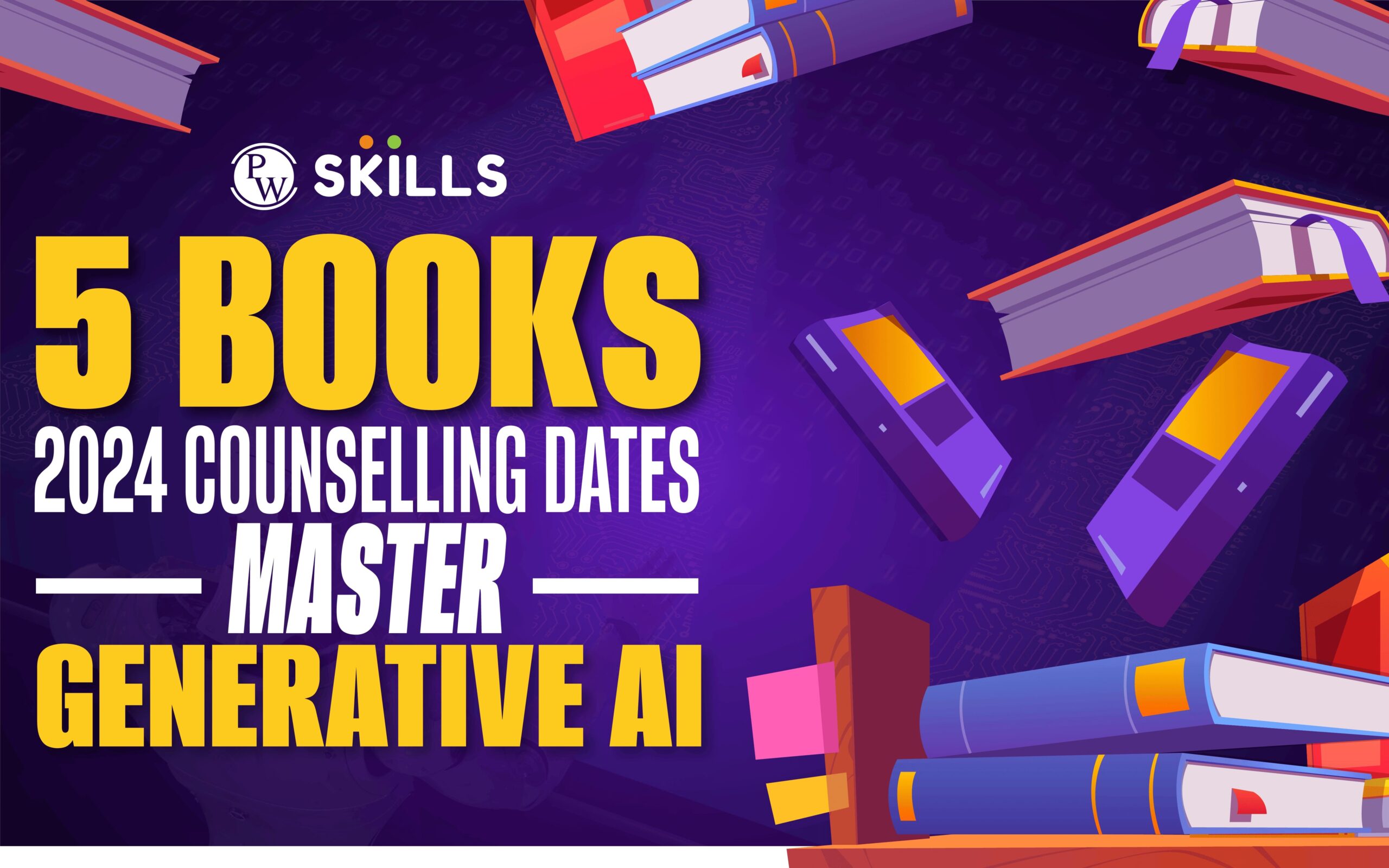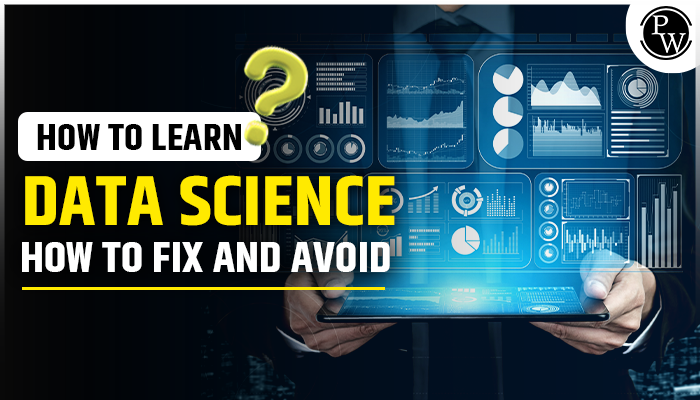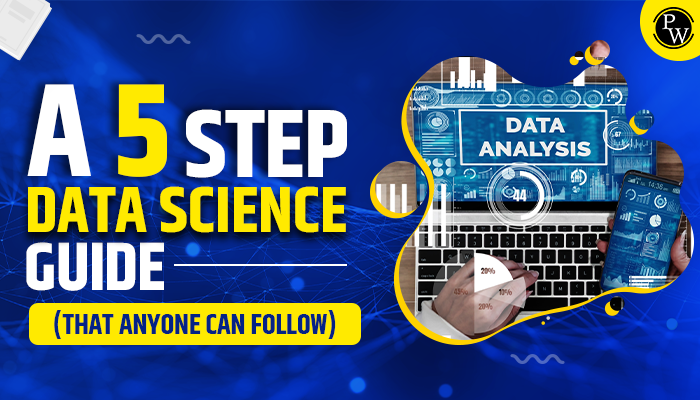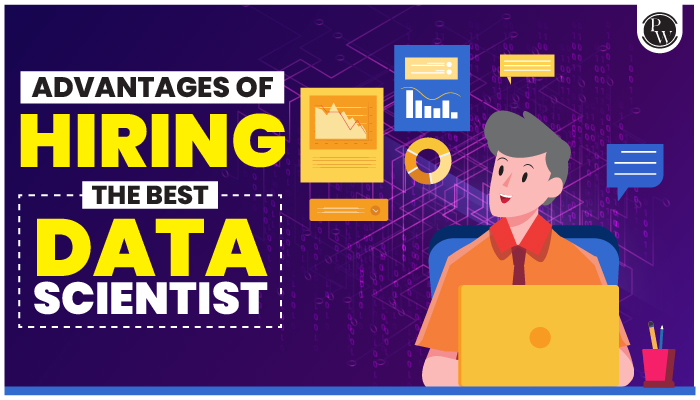Generative AI Books: Are you looking to expand your knowledge of generative AI? With so much potential in this emergent technology, mastering the complexities of its various concepts can be difficult. But never fear! We’ve gathered a collection of books that focus on helping readers understand and master generative AI concepts.
Whether you’re just getting started or want to become an expert, our list has something for everyone interested in understanding how deep learning works and how it can help improve our lives. Let’s dive into some amazing books that will provide invaluable insights as you take your journey with generative AI.
Mastering Generative AI requires patience and hard work but the experience of building projects is well worth the effort. If you are looking for a robust resource to hone your skills in the domain then the Master Generative AI: Data Science Course provided by Physics Wallah could be just what you need. It would be hard pressed for anyone to find such an all-encompassing beginner-level course with extensive content on Generative AI at the provided price! To make it even more accessible and affordable, use the ‘READER’ coupon code at checkout & get fantastic discount!
Recommended Technical Course
- MERN Full Stack Development Course
- Generative AI Course
- System Design Workshop
- Java+DSA 1.0 Course
- Full Stack Web Dev 1.0 Course
- Data Science with ML 1.0 Course
Also read: 15 Best Generative AI Tools To Check Out In 2024!
Best Generative AI Books
Here are some of the best generative AI books:
1) Impromptu: Amplifying Our Humanity Through AI
Author: Reid Hoffman is a co-founder of LinkedIn, an investor at venture firm Greylock Partners, and a former board member of OpenAI.
Publish Date: March 15, 2023
In his recent work, Hoffman shares unique insights into generative AI, drawing on his experience as a former board member of OpenAI, a pioneering organization in the field. As one of the startups at the forefront of the generative AI revolution, OpenAI is renowned for its large language models, including ChatGPT.
Hoffman’s book, crafted with the assistance of GPT-4, the latest iteration of ChatGPT, offers a firsthand account of the capabilities of these advanced generative AI tools.
Hoffman’s book, available for free in PDF format, showcases the potential of GPT-4 through a diverse exploration of topics. From light bulb jokes to epic poems, original sci-fi plots to reflections on human nature, and musings on the societal impact of AI, the book serves as a journey through the creative and intellectual capabilities of the powerful GPT-4.
In a LinkedIn post, Hoffman emphasized the goal of the exploration—to learn not only about the vast landscapes of ideas but also about the evolving nature of AI as a collaborative partner in intellectual pursuits.
2) Rebooting AI: Building Artificial Intelligence We Can Trust
Authors: Gary Marcus and Ernest Davis, both professors at New York University. Marcus is a professor emeritus of psychology and neural science, and Davis is a professor of computer science.
Publish Date: September 10, 2019
Why it’s recommended: “Rebooting AI” comprehensively explores AI advancements and delves into the essential steps required to transition AI systems from narrow intelligence to genuine general intelligence. Marcus and Davis contend that much of AI’s progress has been confined to closed systems with fixed rules, contrasting with the open-ended complexity of the real world.
This book challenges the prevailing belief in the brute force approach of accumulating vast amounts of data for better results in AI, offering an alternative perspective on the path to achieving Artificial General Intelligence (AGI).
Matt Turck from FirstMark, who recommended “Rebooting AI,” appreciates its more skeptical stance on deep learning. While the book acknowledges the significance of deep learning, it questions the efficacy of relying solely on the “more data, better results” mantra, proposing a nuanced approach to AGI development.
3) Artificial Intelligence: A Guide for Thinking Humans
Author: Melanie Mitchell is a professor at the Santa Fe Institute with a research focus on visual recognition and AI systems.
Publish Date: October 15, 2019
Why it’s popular: Melanie Mitchell’s book tackles fundamental questions surrounding the dynamic field of artificial intelligence. In her exploration, she addresses vital inquiries like the accurate intelligence of the best AI programs, their functioning, capabilities, limitations, and the anticipation of their evolution. Mitchell offers readers a realistic perspective on AI’s achievements, current state, and challenges. The book has also earned recognition, being selected for the Stanford HAI 2022 “AI Books Recs” list.
Shana Lynch, Head of Content for Stanford’s HAI, commends Mitchell for showing readers the actual capabilities of AI versus speculative expectations. “Artificial Intelligence: A Guide for Thinking Humans” provides a valuable overview of the technology, its accomplishments, and the complexities it grapples with.
4) The Master Algorithm
Author: Pedro Domingos, Professor Emeritus of Computer Science and Engineering at the University of Washington
Publish Date: September 22, 2015
Pedro Domingos, a distinguished researcher in machine learning and data mining, presents an ambitious narrative in “The Master Algorithm.”
Endorsed by Bill Gates at the Code Conference in 2016, the book offers readers a comprehensive overview of the five primary schools of thought in machine learning. Domingos delves into the inner workings of learning models employed by tech giants such as Google and Amazon, providing readers with a behind-the-scenes understanding of the technology that shapes these industry leaders.
The heart of Domingos’s exploration revolves around a “master algorithm”—a learning algorithm that can extract any knowledge from data. Beyond dissecting technical aspects, Domingos elucidates the implications of such an invention for both business and society.
Matt Turck, an investor specializing in generative AI at FirstMark Capital, considers “The Master Algorithm” a timeless and insightful introduction. Turck notes its foresight in addressing key issues and praises it as a rare gem combining approachability, compelling narrative, and technical accuracy.
Also read: Top 27 Generative AI Projects Ideas with Source Codes
Generative AI Books for Beginners
1) Generative Deep Learning
- Author: David Foster
- Rating: 4.5
Discover the artistic capabilities of generative AI with David Foster’s comprehensive guide. This book converges deep learning and creativity, illustrating how machines can create art, literature, music, and more. Boasting a rating of 4.5, Foster’s work offers a hands-on approach, inviting readers to explore the imaginative side of AI.
2) Demystifying Prompt Engineering: A Practical Guide to AI Prompts
- Author: Harish Bhat
- Rating: 4.5
Embark on a journey into the realm of AI prompts with Harish Bhat’s step-by-step guide. Focused on unraveling the complexities of prompt engineering, this book provides practical insights into crafting effective prompts for AI models. With a commendable rating of 4.5, it is an ideal resource for those eager to engage hands-on with AI interactions.
3) GANs in Action
GANs (Generative Adversarial Networks) power various generative AI applications, and “GANs in Action” offers a practical exploration of their implementation.
This book guides you through creating your generative models, manipulating and generating images, and leveraging GANs for tasks like data augmentation and style transfer. Packed with hands-on examples and real-world use cases, it is an invaluable resource for aspiring generative AI practitioners.
4) Natural Language Processing in Action
Generative AI extends its reach beyond visuals into human-like text generation. This book extensively introduces natural language processing (NLP) techniques, crucial for text-based generative AI tasks.
Delve into topics such as recurrent neural networks (RNNs), sequence-to-sequence models, and the latest advancements in NLP utilizing transformers. Understanding NLP is fundamental for mastering text-based generative AI.
Generative AI is an exciting way to broaden one’s understanding of data science and create more advanced models. With the resources mentioned here, anyone looking to learn more about Generative AI can get started immediately. Whether a beginner or an expert, these books are full of tips and tricks to help cultivate all-encompassing knowledge into the world of Generative AI.
However, for those who want to master Generative AI faster, the Master Generative AI: Data Science Course by Physics Wallah is a great resource that will help you understand the complex concepts behind it while also giving you dozens of projects to help reinforce your knowledge. Block out some time in your calendar today to get an edge on the competition with Master Generative AI: Data Science Course by Physics Wallah!
Also read: What Is Natural Language Processing in Data Science 2023?
FAQs
What are some recommended books on Generative AI?
Notable books on Generative AI include "Rebooting AI: Building Artificial Intelligence We Can Trust" by Gary Marcus and Ernest Davis and "Artificial Intelligence: A Guide for Thinking Humans" by Melanie Mitchell.
Why is "Rebooting AI" recommended?
"Rebooting AI" provides insights into the development of AI and challenges the conventional approach of relying solely on large datasets for progress. It offers a skeptical take on deep learning and suggests alternative paths to achieving Artificial General Intelligence (AGI).
Who are the authors of "Rebooting AI"?
The authors of "Rebooting AI" are Gary Marcus, a professor emeritus of psychology and neural science, and Ernest Davis, a professor of computer science, both from New York University.
What distinguishes "Artificial Intelligence: A Guide for Thinking Humans"?
Authored by Melanie Mitchell, this book addresses fundamental questions about AI's true intelligence, functioning, capabilities, and potential evolution. It provides a realistic overview of AI's achievements and challenges.
What topics does "Artificial Intelligence: A Guide for Thinking Humans" cover?
Melanie Mitchell's book delves into AI programs' intelligence, functioning, capabilities, limitations, and the societal implications of their evolution.





